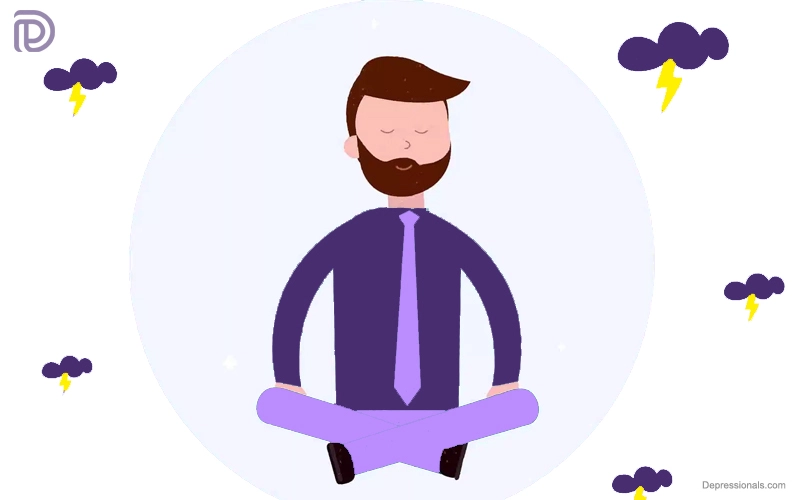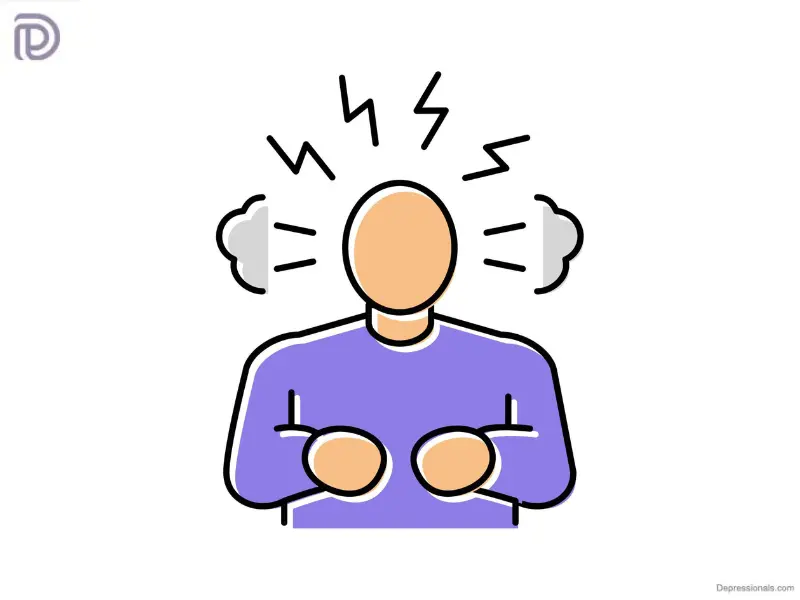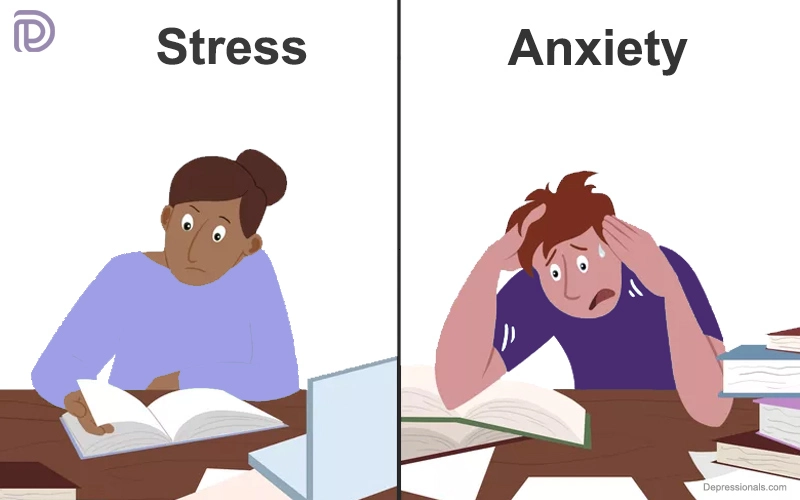Stress in the workplace and at home may seem impossible to handle, but you can take steps to handle the pressure and regain control with stress management techniques.
The importance of managing stress
When you’re stressed out, you put your health and wellbeing at risk. Having too much stress can affect your mental and physical health. Having anxiety makes it difficult for you to think clearly, act effectively, and enjoy life. You may feel that you can’t do anything about stress.
No matter how hard you try, the bills will not stop coming, the days won’t get longer, and your responsibilities at work and home will always be busy. You are indeed in control, but you might not have realized it.
Stress management can help you live a more peaceful, healthier, and more productive life by minimizing the negative effects of stress on your body and mind. We all strive for a balanced life, which involves work, relaxation, relationships, and play, and the ability to handle pressure and meet challenges.
There is no one-size-fits-all solution to stress management. This is why it’s so crucial to experiment to discover what works for you. Use the following tips to manage your stress.
Related: 12 Simple Ways to Reduce Stress
Tip 1. Find out the source of your stress
To manage stress, you must first identify where it comes from. It’s not as simple as it sounds. The main sources of major stress, such as changing jobs, moving, or going through a divorce, are easy to pinpoint. Chronic stress, however, is more difficult to track.
There are many ways you can contribute to your daily stress levels through your thoughts, feelings and behaviors.
You may think that you’re constantly stressed out by work deadlines, but it may not be the work demands themselves that are to blame, but rather your procrastination.
Identify the true causes of your stress by paying close attention to your habits, attitude, and excuses:
- How do you deal with stress? What do you say to yourself when you are stressed (I have a million things going on right now) even though you can’t remember when you took a break?
- How would you define stress in your life? Is it an integral part of your work or personal life (“Things are always crazy around here”) or an expression of your character (“I’m always tense or excited”?)
- How do you feel about your stress? Do you blame it on others or events outside your control, or do you simply accept it as normal and unexceptional?
Stress will remain out of your control as long as you do not take responsibility for its creation or maintenance.
Read: Stress During Pregnancy
Start a stress journal
The purpose of a stress journal is to identify the regular stresses in your life as well as the way you handle them. Maintain a journal or use your phone’s stress tracker each time you feel stressed. It will be easier for you to see patterns if you keep a daily journal. Make a note of:
Describe the source of your stress (guess if not sure).
- How you felt, on an emotional and physical level.
- Describe how you reacted.
- How you made yourself feel better.
Check: Acute Stress
Tip 2: Follow the 4 A’s to manage stress
Some stressors come at predictable times: the commute to work, an important meeting with your boss, or a family gathering, for example. Stress triggers your nervous system on demand.
When dealing with predictable stressors, it’s up to you whether you want to change the situation or not. You may want to keep in mind that in any given situation, there are four options: avoid, alter, adapt, or accept.
The four A’s – Avoid, Alter, Adapt & Accept
Recommended: Economic Stress
Tip 3: Get moving
Being stressed probably makes it the last thing on your mind to get up and work out. However, physical activity is a powerful stress reliever and you don’t need to be an athlete or spend hours in a gym to reap its benefits. The release of endorphins from exercise enhances your mood and can help you distract yourself from daily worries.
If you exercise regularly for at least 30 minutes, you will reap the most benefits, but you can also get in shape gradually. Daily activities can accumulate even if they are small. Getting yourself moving is the first step. To make exercise a regular part of your daily routine, here are a few ideas:
- Get up and dance to music.
- Go for a walk with your dog.
- Go grocery shopping on foot or by bicycle.
- Take the stairs rather than the elevator at home or work.
- Walk from the farthest spot in the parking lot to the concert venue.
- Work out together with a partner and motivate each other to keep going.
- Join your kids in playing ping-pong or an activity-based video game.
Also, check: Financial Stress
Mindful rhythmic exercise for stress management
Rhythmical activities burn away tension and stress more efficiently than just about any other type of physical activity. Stress management exercises that are good for the heart are walking, swimming, running, cycling, dancing, Pilates and Tai Chi.
You should pick something you enjoy to make sure you stick with it.
If you exercise, make a conscious effort to pay attention to the physical sensations you experience (and sometimes even your emotions) as you move. You may want to observe the way your breathing and movements flow together, for instance, or how the air feels on your skin.
Stress can often result in negative thinking, so adding this mindfulness element will help you bounce back from it.
Tip 4: Connect to others
A partner who understands and cares about you is the most calming thing in the world. Facial expressions trigger a cascade of hormones that suppresses the body’s invulnerable “fight-or-flight” response.
The plants in nature contain natural stress-relieving substances (as a bonus, they also help prevent depression and anxiety). You should connect regularly with friends and family in person.
Whenever you talk to someone, remember that they don’t have to be able to bring your stress under control. It is simply a matter of being good listeners. You should never be afraid of appearing weak or burdensome.
Your trust will be appreciated by those who care about you. As a result, your bond will grow stronger.
Even though it may not always be possible to have a close friend by your side when you are stressed, maintaining a network of friends can improve your ability to cope with stress management activities.
Related: How to Deal with Frustration
Tips to build relationships
- Make contact with a colleague.
- Become a volunteer and help someone else.
- Spend time with a friend over lunch or coffee.
- Regularly check in with a loved one.
- Visit a movie theater or concert with a friend.
- Send an email or call an old friend.
- Get a workout buddy and go for a walk.
- Make weekly dinner plans.
- Take a class or join a club to meet new people.
- Consider talking to someone in the clergy, the classroom, or the sports team.
Tip 5: Take time to have fun and relax
You can reduce stress in your life beyond taking charge and adopting a positive attitude by carving out some “me” time. Keep your focus on yourself, instead of getting distracted by the everyday hassles of life.
Nurturing yourself is not a luxury, but a necessity. Stress management becomes easier when you set aside time for fun and relaxation.
Make leisure time a priority. Your daily schedule should include time for relaxation. Make sure your obligations don’t interfere with your work. Here’s your chance to recharge your batteries and get away from all your responsibilities.
Take time to enjoy yourself every day. You should dedicate some time to leisure activities that are a source of joy to you, whether it is stargazing, playing the piano or cycling.
Maintain a sense of humor. It also means you can laugh at yourself. Several benefits come from laughing, including stress reduction.
Practice relaxation. The relaxation response is activated by meditation, yoga, and deep breathing techniques, and it is the opposite of the fight or flight and mobilization responses. You will become calm and centered as you learn and practice these techniques.
Read: Stress Response Syndrome
Tips 6: Organize your time better

Stress can be caused by poor time management. It’s difficult to stay calm and focused when you’re stressed and running behind. It may also tempt you to avoid or reduce your efforts to keep stress under control, such as socializing and getting enough sleep.
The good news is that there are many things you can do to improve your work-life balance. These are very effective for stress management.
Make sure you don’t overcommit: Try not to schedule too many things in one day or schedule them back-to-back. The amount of time it takes us to accomplish things is all too often underestimated.
Set priorities: Organize your to-do list so you can address each one in order of importance. Prioritize the tasks that are high on your list. It’s best to get things out of the way as soon as possible if they are particularly stressful or unpleasant. You’ll have a more pleasant rest of the day afterward.
Make small steps in your projects: Plan your project step-by-step if you feel overwhelmed. Try to achieve one manageable goal at a time, rather than trying to tackle everything at once.
Assign responsibilities: It is not necessary to do it all yourself, whether you are at home, in school, or at work. The task can be handled by someone else, so why not let them do it? Don’t worry about controlling or overseeing every step. This will help you release unnecessary stress.
Read: COVID-19 Stress
Tips 7: Keep a healthy lifestyle in balance
Regular exercise is one way to increase your resistance to stress, but there are other healthy lifestyle choices you can make to stick with stress management.
Eat a healthy diet: It is important to eat well to cope better with stress, so be aware of your healthy diet. Breakfast can help get your day started, and nutritious meals can keep your energy levels high and your mind clear all day long.
Reduce sugar and caffeine intake: Sugar and caffeine provide temporary boosts in energy and mood, but they are usually short-lived. You’ll feel more relaxed if you cut back on coffee, soft drinks, chocolate and sugary snacks.
Avoid cigarettes, alcohol and drugs: Taking drugs or alcohol to relieve stress may seem like an easy way to relieve stress, but the relief is only temporary. Be bold and transparent in dealing with problems; don’t try to cover them up or avoid them.
Sleep well: Sleep is essential for both the body and the mind. Stress is increased when you feel tired because tiredness can cause you to think irrationally.
Read: 7 Causes of Stressful Work Environment
Tip 8: Learn to handle stress at the moment
You need a way to cope with your stress level right now if you’re feeling frazzled by your morning commute, stuck in a difficult meeting at work, or angry with your spouse. Fast stress relief is the answer.
If you want to reduce stress as quickly as possible, take a deep breath and use your senses to reduce what you see, hear, taste, and feel-or move in a relaxing way. When you look at a favorite picture, smell a particular scent, listen to a piece of music, taste a piece of gum, or hug a pet, you can easily relax and focus your mind.
Every person responds differently to each sensory experience. It is important to experiment with sensory experiences and discover which ones work best for you. And must follow the above stress management strategies to observe the best one.






Hi there, I discovered your web site by way of Google whilst searching for
a similar matter, your web site got here up, it looks great.
I’ve bookmarked it in my google bookmarks.
Hello there, simply changed into aware of your blog
through Google, and found that it’s really informative.
I am gonna watch out for brussels. I’ll be grateful when you proceed this in future.
Numerous other folks might be benefited out of your writing.
Cheers!
Now I am going away to do my breakfast, afterward having my breakfast coming yet
again to read more news.
wonderful points altogether, you simply gained a emblem new reader. What would you suggest about your submit that you made a few days in the past? Any sure?
Unquestionably believe that which you said. Your favorite reason appeared to be on the net the easiest thing to be aware of. I say to you, I definitely get annoyed while people think about worries that they just don’t know about. You managed to hit the nail upon the top and defined out the whole thing without having side effect , people could take a signal. Will likely be back to get more. Thanks
Good day! This is my first comment here so I just wanted to give a quick shout out and tell you I genuinely enjoy reading your blog posts.
I have been surfing online more than 3 hours today, yet I never found any attention-grabbing article like yours. It is beautiful value enough for me. Personally, if all site owners and bloggers made excellent content material as you did, the internet might be a lot more useful than ever before.
This is very informative.